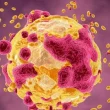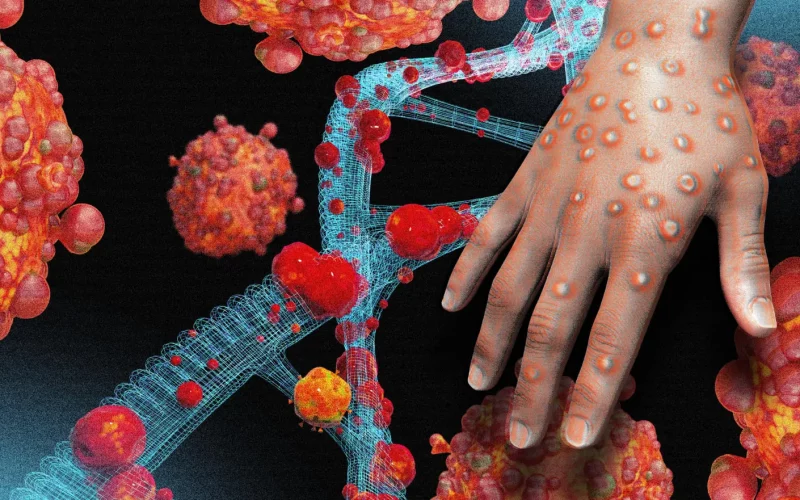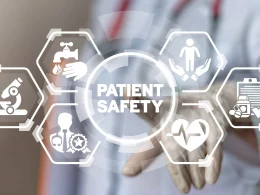Introduction
Monkeypox is a rare but potentially serious viral illness that can affect humans. While cases of monkeypox are rare outside of Central and West Africa, it’s essential for parents to be aware of this disease and take necessary precautions to protect their families. In this comprehensive guide, we’ll delve into everything parents need to know about Monkeypox Awareness, including its symptoms, transmission, prevention, and what to do if you suspect your child has been exposed.
Understanding Monkeypox
Monkeypox is caused by the monkeypox virus, which belongs to the same family of viruses as smallpox. The virus was first discovered in laboratory monkeys in 1958, hence its name, but cases in humans have been documented since then. While monkeypox is primarily found in Central and West Africa, sporadic cases outside of these regions have been reported.
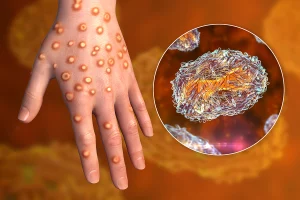
Symptoms of Monkeypox
typically appear within 5 to 21 days after exposure to the virus. Initially, symptoms may include fever, headache, muscle aches, and fatigue. Within a few days, a rash develops, often starting on the face then spreading to other parts of the body. The rash evolves into raised bumps filled with fluid, which eventually crust over and fall off.
Transmission of Monkeypox
Monkeypox can spread from person to person through respiratory droplets or contact with bodily fluids of an infected individual. Additionally, direct contact with infected animals or their bodily fluids can also transmit the virus. While human-to-human transmission is possible, it’s generally limited, and widespread outbreaks are rare.
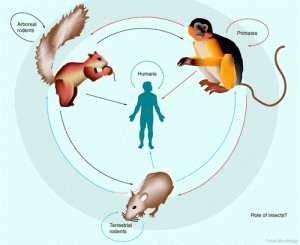
Protecting Your Family from Monkeypox
Prevention is key when it comes to monkeypox, especially for families with young children who may be more vulnerable to infections. Here are some essential steps parents can take to protect their families from the threat of monkeypox:
Vaccination
Currently, there is no specific treatment for monkeypox, but vaccination against smallpox has been shown to provide some cross-protection against monkeypox. If you live in or are traveling to an area where monkeypox is endemic, consider discussing vaccination with your healthcare provider.
Hand Hygiene
Encourage regular handwashing with soap and water, especially after using the restroom, before eating, and after contact with animals. Hand sanitizer with at least 60% alcohol can also be used if soap and water are not readily available.

Avoid Contact with Wild Animals
Monkeypox primarily circulates among animals, including rodents and primates. Avoid handling or coming into close contact with wild animals, especially in areas where monkeypox cases have been reported.
Practice Respiratory Hygiene
Teach children to cover their mouth and nose with a tissue or their elbow when coughing or sneezing. Dispose of used tissues properly and encourage frequent ventilation in indoor spaces.
Monitor for Symptoms
Be vigilant for any signs of illness in yourself and your children, especially if you’ve recently traveled to an area where monkeypox is prevalent or have been in contact with someone who has the disease.

What to Do If You Suspect Monkeypox
If you suspect that you or your child may have been exposed to monkeypox or are experiencing symptoms consistent with the disease, it’s essential to seek medical attention promptly. Contact your healthcare provider or local health department for guidance on testing and treatment options.
Isolation
If diagnosed with monkeypox, isolation precautions may be necessary to prevent further spread of the virus. Follow the recommendations of healthcare professionals and public health authorities to minimize the risk of transmission to others.
Supportive Care
Treatment for monkeypox is primarily supportive and focused on relieving symptoms. This may include pain relievers, antipyretics for fever, and hydration to prevent dehydration.
Contact Tracing
Health authorities may conduct contact tracing to identify individuals who may have been exposed to the virus and implement preventive measures, such as monitoring for symptoms or quarantine, as necessary. Explore More About (Heart Health)
| Aspect | Smallpox | Monkeypox |
|---|---|---|
| Causative Agent | Variola virus | Monkeypox virus |
| Origin | Likely originated in Africa | Discovered in laboratory monkeys in 1958, primarily found in Central and West Africa |
| Transmission | Human-to-human contact, respiratory droplets, contaminated objects | Similar to smallpox; human-to-human transmission, contact with infected animals |
| Incubation Period | Around 12 to 14 days | 5 to 21 days |
| Initial Symptoms | Fever, malaise, headache, severe backache, rash | Fever, headache, muscle aches, fatigue |
| Rash | Starts on face and extremities, spreads to trunk; progresses from macules to papules to pustules | Begins on face and spreads to other parts of the body; evolves into raised bumps filled with fluid |
| Mortality Rate | Historically high, up to 30% | Lower than smallpox, typically less severe; mortality rate varies |
| Vaccination | Smallpox vaccine available, eradicated globally | No specific vaccine for monkeypox; smallpox vaccination may provide some cross-protection |
| Global Eradication | Eradicated in 1980 | Cases still reported, primarily in Central and West Africa |
| Prevention | Vaccination, isolation of cases, contact tracing | Hand hygiene, avoiding contact with wild animals, respiratory hygiene |
Conclusion
While the risk of monkeypox transmission outside of Central and West Africa is low, parents should remain vigilant and take necessary precautions to protect their families. By staying informed about the symptoms, transmission, and prevention of monkeypox, parents can help minimize the risk of exposure and ensure the health and safety of their loved ones.
For more information on monkeypox and other infectious diseases, visit the Centers for Disease Control and Prevention (CDC) website or consult with your healthcare provider.
Remember, knowledge is power when it comes to protecting your family from potential health threats like monkeypox. Stay informed, stay vigilant, and stay safe.




